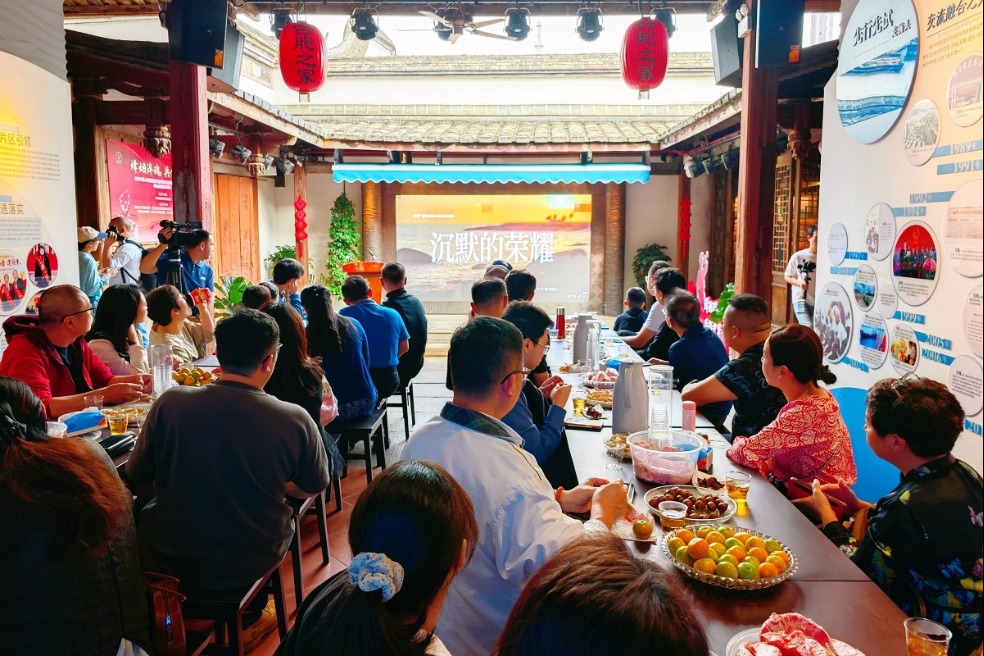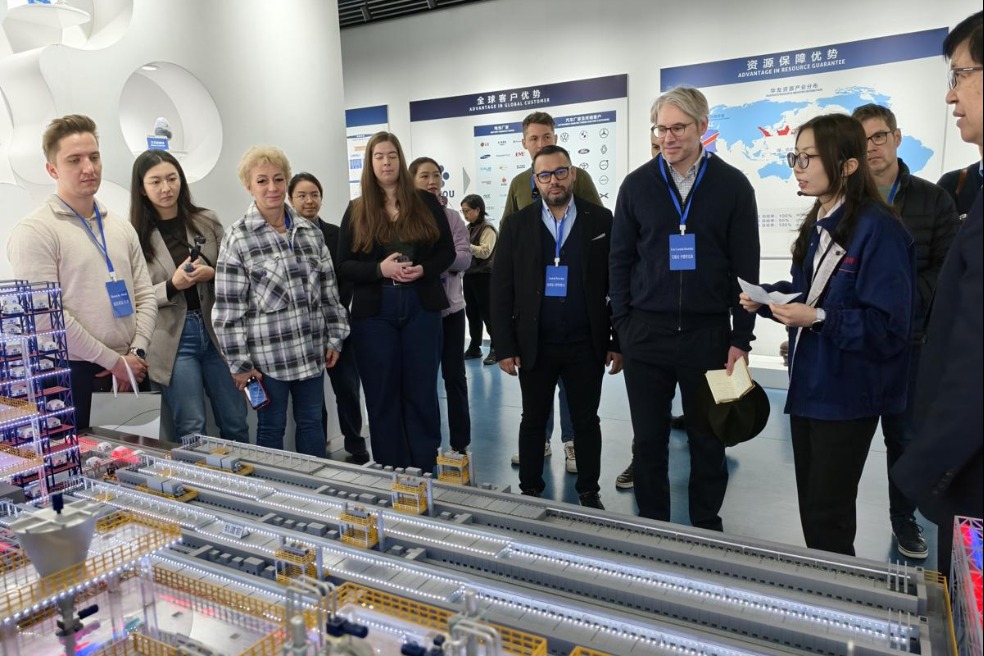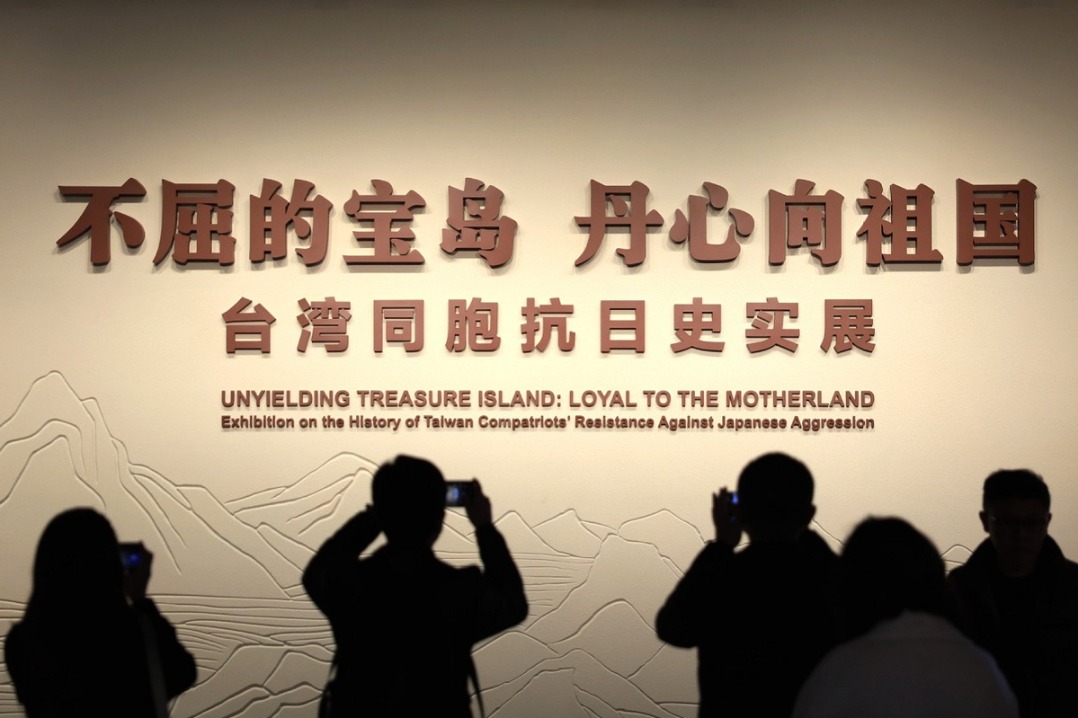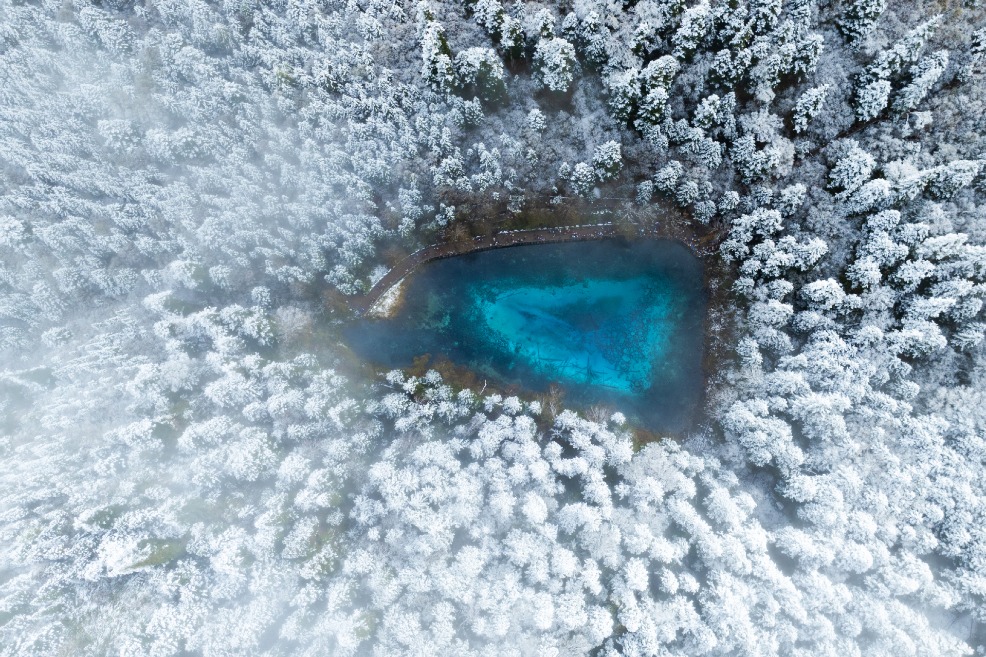Xi's trip cemented China-UAE relations

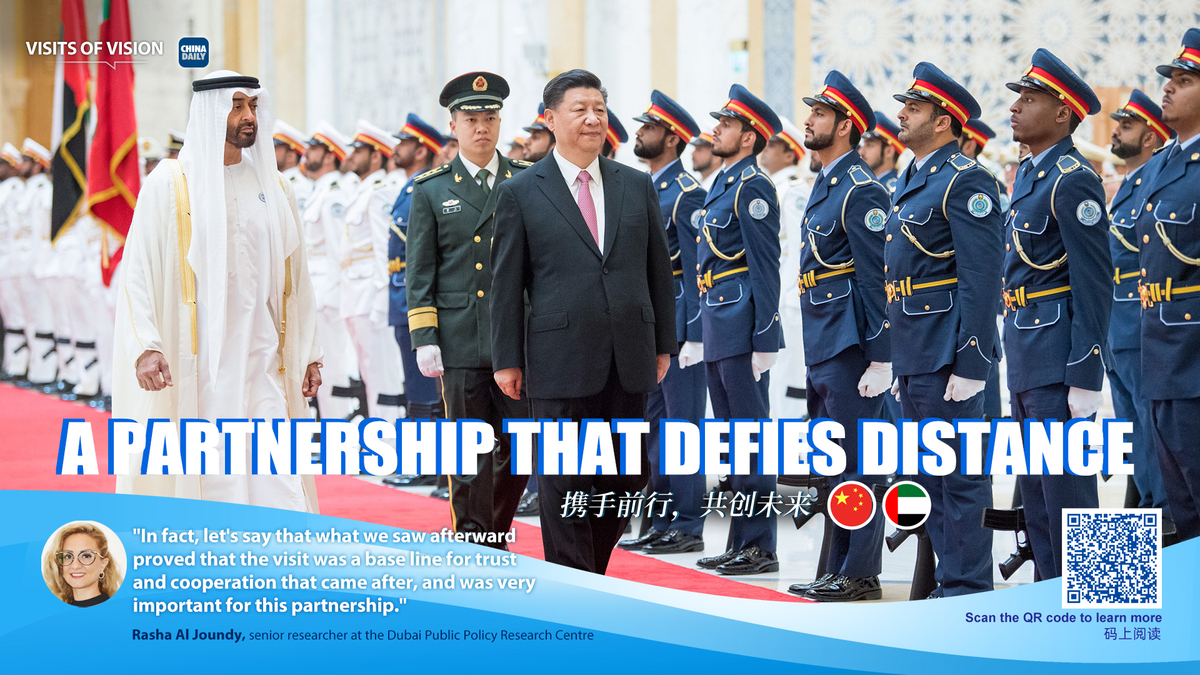
Editor's Note: China Daily is publishing a series of stories reviewing President Xi Jinping's visits at home and abroad in the past decade, to showcase his vision for development in China and the world.
Shaojin Chai recalled the buzz surrounding preparations for a series of welcoming events in the United Arab Emirates just before President Xi Jinping's visit to the country in 2018.
Chai, an assistant professor in the department of international relations at the University of Sharjah in the UAE, had been asked by some Emirati cultural and news institutions to take part in their events, including a cultural event to be attended by Xi's wife, Peng Liyuan.
"Everybody was excited," Chai said. "It was the first time since (1989) that (a Chinese) head of state had visited the UAE," he said, referring to the December 1989 visit by then president Yang Shangkun. The visit was reciprocated in 1990 when the UAE's late founding father, Sheikh Zayed Bin Sultan Al Nahyan, visited China, six years after diplomatic relations between the two countries were established in November 1984.
Relations between China and the UAE have been greatly promoted since Xi's visit, analysts say.
To have the leader of a great power visit the UAE "is significant for the UAE, both strategically and symbolically", Chai said.
Du Wei, the Chinese director at the Confucius Institute at Zayed University, said Xi's visit boosted collaboration in education between China and the UAE, especially since the UAE government was set to launch a Chinese-language program in 100 public schools.
Xi's visit "promoted, facilitated and also made" the launch of the Chinese-language program official, Du said.
"Traditionally, people here think that the Chinese language is difficult to learn," said Du, who expressed regret over missing Xi's visit because she was accompanying Emirati students on a 20-day study visit to China at the time.
"Since (Xi's) visit, people feel there's a need to study the language. They are more interested in understanding China."
Du said she was among the team of specialists who produced an initial study on introducing Chinese-language programs in collaboration with the UAE's Ministry of Education. She selected and interviewed 20 teachers to start the program, she said. It developed quickly and is now available in 141 public schools.
During Xi's visit, China and the UAE signed several deals, covering energy, finance, agriculture and e-commerce, including approval of the first Chinese State-owned financial services company being set up in Abu Dhabi.

Joint opportunities
The Abu Dhabi National Oil Co and the China National Petroleum Corp also agreed to explore joint business opportunities at that time.
Today, with both countries also dealing with the COVID-19 pandemic, the UAE embassy in Beijing said the annual value of bilateral trade between China and the UAE has reached $50 billion and is on track to increase to $200 billion by 2030.
"In fact, let's say that what we saw afterward proved that the visit was a base line for trust and cooperation that came after, and was very important for this partnership, especially on science," said Rasha Al Joundy, a Gulf expert and senior researcher at the Dubai Public Policy Research Centre.
"China and the UAE have cooperated intensely to combat the COVID-19 pandemic. In fact, the UAE has hosted the clinical trials for Sinopharm, and it has manufactured Sinopharm (vaccines). … The UAE had the highest rate of vaccination because of that."
In December 2020, the UAE was the first country to approve emergency public use of Sinopharm-developed COVID-19 vaccines. In March last year, the UAE announced that it would start making those vaccines locally as part of a joint venture between the Chinese pharmaceutical company and an Abu Dhabi enterprise.
The collaboration between China and the UAE facilitated a vaccination program for low-income countries, especially in Africa, proving that bilateral relations were not affected during the pandemic and that trade in other sectors also continued, Al Joundy said.
"There were no shortages of any product coming to the UAE from China whatsoever during the pandemic," she said, adding that the increased mutual trust generated during Xi's visit became crucial, given the issue of food security today.
Ebrahim Hashem, former adviser to the chairman of the Abu Dhabi Executive Office, an authority responsible for Abu Dhabi's long-term strategies, and Asia Global fellow at the Asia Global Institute at the University of Hong Kong, said Xi's "critically important" visit in 2018 helped upgrade the relationship between the UAE and China from "strategic partnership to comprehensive strategic partnership".
Awareness of China and its civilization and culture has greatly improved since Xi's visit, Hashem said. Before the visit, everybody "was talking about the West and I was talking about China", he said.
"But after that visit a major paradigm shift happened in the minds of a lot of Emiratis. In my opinion, there are almost no limits on the potential of this relationship," Hashem said.
"The oil (sector's contribution to) GDP is less than 30 percent. The non-oil (contribution to GDP) is above 70 percent, but we have our long-term vision, and we see major synergies between our long-term vision and the Belt and Road Initiative," he added.
Larger contribution
In April, the UAE's Federal Competitiveness and Statistics Center said the country's non-oil sector contribution to GDP amounted to 72.3 percent last year, up from 71.3 percent in 2020.
Hotels and restaurants contributed 21.3 percent, wholesale and retail 14.1 percent and health and social services sector 13.8 percent, it said.
"We want to have a larger contribution from the manufacturing sector to our GDP," Hashem said. "We're interested in technology. There's huge collaboration now between us and China in the area of technology (and) in the digital economy.
"Renewables is another area, (as are) digital technology, digital economy and, of course, security. There is a deeper discussion when it comes to security, but it's one area that may actually take some time to develop and evolve."
- Nation marks 80th anniversary of Taiwan's restoration amid calls for reunification
- Xinjiang's Tacheng secures 10bn yuan boost for modern industrial projects
- Tianjin leads nation in geothermal energy use
- Golden Melody Awards celebrate rich cultural heritage of Hokkien music
- Jiangmen terminates Level III Chikungunya emergency response
- Civil aviation sector shows growth with release of upcoming flight season
















